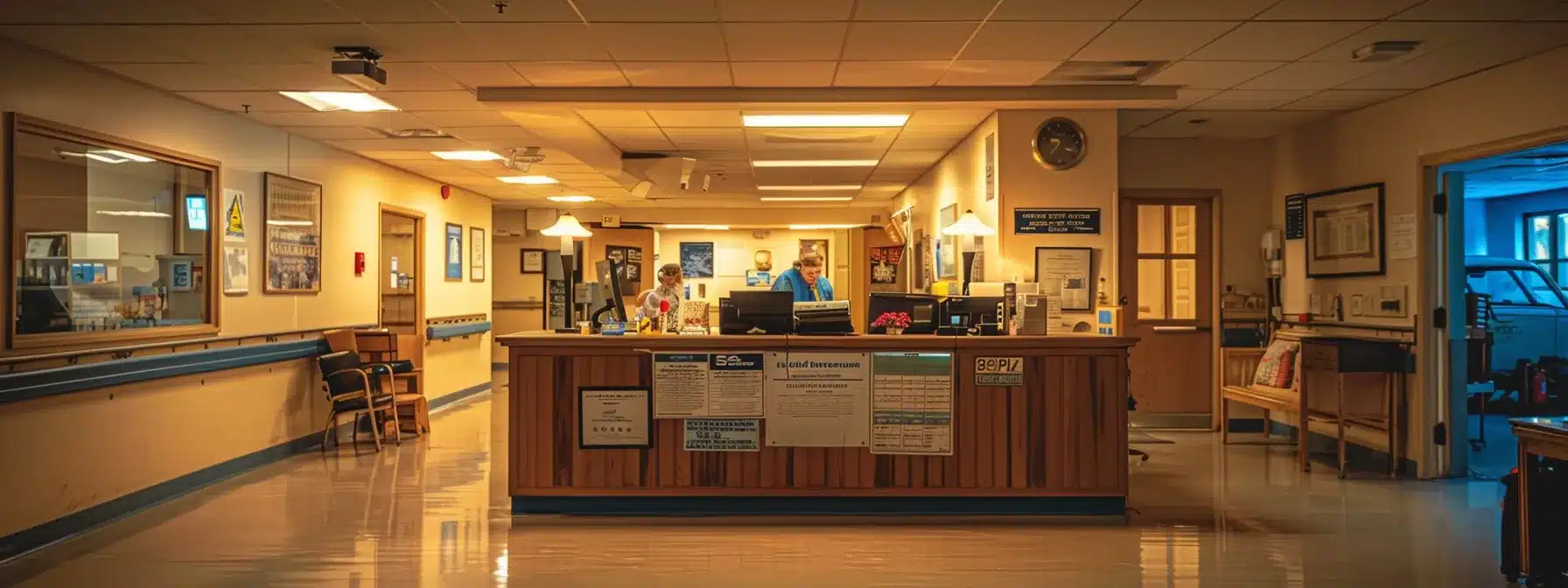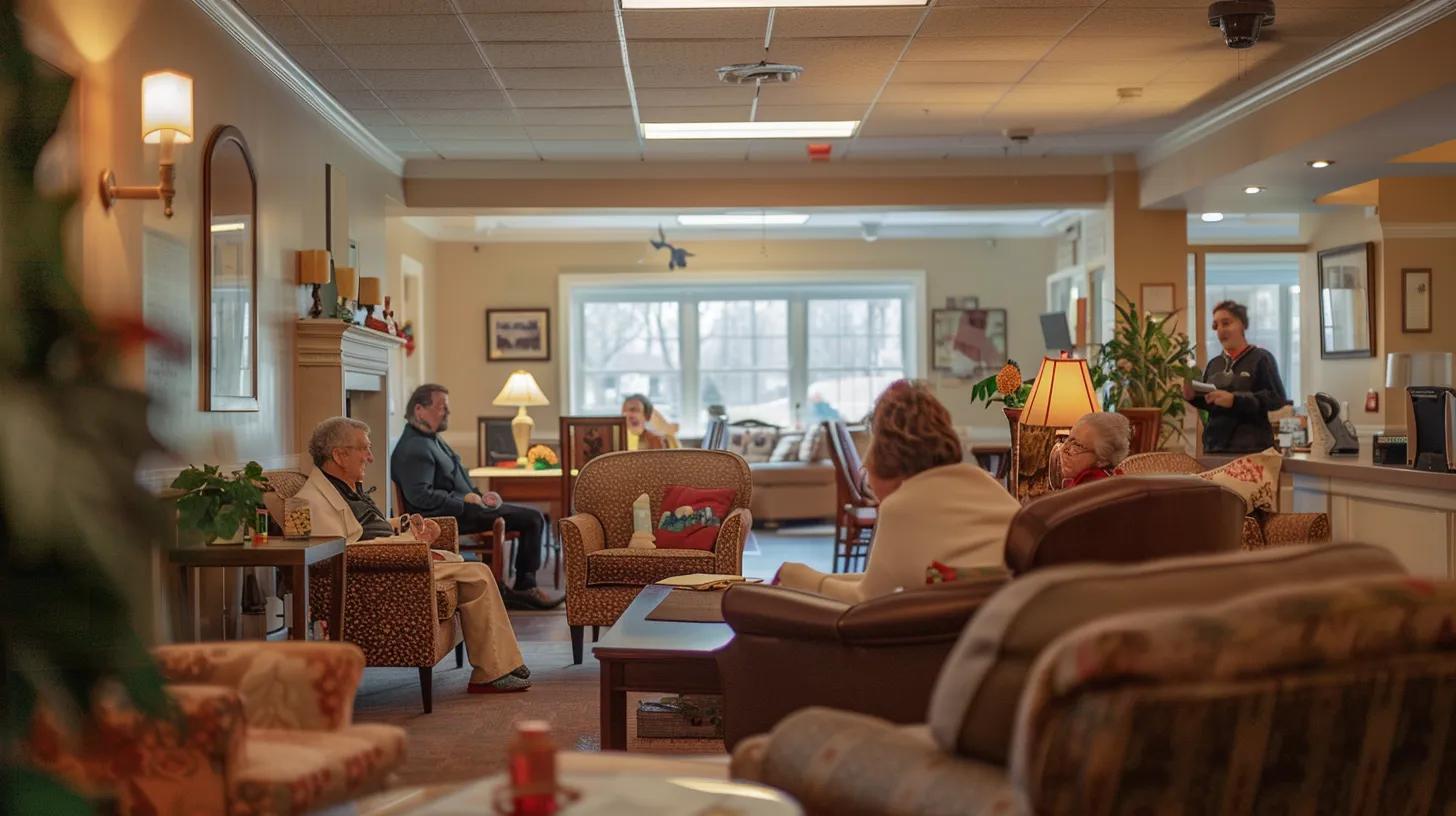Find a comprehensive guide to assisted living for dementia care, offering insights on services, support, and compassionate living environments for loved ones.

Navigating Michigan’s Dementia Nursing Home Certifications
Table Of Contents:
- Understanding Michigan Dementia Nursing Home Certifications
- Key Takeaways
- Overview of Michigan Dementia Nursing Home Certifications
- Requirements for Certification in Michigan
- The Certification Process Explained
- Importance of Certification for Families
- Michigan’s Regulatory Bodies and Their Roles
- Case Studies and Success Stories
- Frequently Asked Questions
- Conclusion
Understanding Michigan DementiaNursing Home Certifications
Are Michigan DementiaNursing Home Certifications meeting your family’s care needs? This article explains the certification process, requirements, and the roles of Michigan’s regulatory bodies. Readers will gain a clear view of how these standards help families make informed care choices for loved ones with dementia.
Key Takeaways
- dementia care certification confirms competence in managing complex behavioral needs
- certified facilities offer reliable indicators for quality dementia care
- regulatory oversight ensures safe practices and high care standards in nursing homes
- families benefit from transparent processes when choosing care facilities
- regular evaluations and documentation reinforce consistent care improvements
Overview of Michigan DementiaNursing Home Certifications
This section outlines the definition of dementia care certification and reviews the types available in Michigan. It explains how certification boosts the behavior management and quality of elderly care, while solid accreditation within an organization supports improved standards and benefits for nursing homes.
Definition of Dementia Care Certification
The definition of dementia care certification refers to the process by which a facility demonstrates its adherence to a high standard of care for residents affected by disease, particularly within geriatrics. This certification confirms that a facility has the necessary skill to manage complex behavioral needs and provides reliable support, ensuring safety and comfort similar to standards found in facilities recognized in locations like saint vincent and the grenadines.
This certification represents a mark of excellence, verifying that staff and systems are equipped to handle specialized dementia challenges. It serves as a benchmark for quality and consistency in elder care, assuring families that their loved ones receive appropriate and expert support that aligns with the highest standard of care in geriatrics and related fields.
Types of Certifications Available in Michigan
The state offers various certifications that confirm a facility’s capability in delivering specialized dementia care, ensuring that every professional meets high standards in nursing and health care. These credentials also encourage a collaborative approach between facility staff and local physicians, fostering an environment similar to recognized standards even seen in regions like saint kitts and nevis.
Certification types focus on critical areas such as behavioral management and support, allowing facilities to demonstrate excellence in treating residents with dementia. This approach solidifies a center’s role in the profession and emphasizes the importance of tailored health care in nursing settings, reinforcing confidence among families seeking reliable and competent oversight.
Benefits of Certification for Nursing Homes
The certification helps nursing homes to build trust with families and strengthen their reputation as a reputable nonprofit organization offering dedicated dementia care. This standard fosters comprehensive support, ensuring that every caregiver is prepared to meet the unique challenges of residents while improving quality of life. The result is a commitment to practices that reinforce both on-site care and home care options, providing a steady foundation for residents and their families.
Facilities with this certification show a tangible improvement in resident services, including specialized respite care and personalized attention by trained staff. This level of certification ensures that nursing homes remain accountable and responsive to the needs of residents, reinforcing the role of each caregiver in promoting a safe and engaging environment. These efforts directly contribute to an enhanced quality of life and a stronger sense of trust among the families they serve.
Michigan’s overview has laid the groundwork for understanding the system. The next section tackles the real steps for certification, revealing clear guidelines that truly matter.
Requirements for Certification in Michigan

This segment covers standards for staffing and training, safety and quality measures, and the documentation process. It outlines how a facility ensures caregiving excellence for dementia through a well-maintained database, mirroring practices in a village setting or a republic such as the Ivory Coast. This information supports facilities seeking improved certification outcomes.
Staffing Standards and Training Mandates
The facility ensures that every team member is a verified health professional, holding the necessary credential to provide exceptional care in a dementia environment. The focus on staffing standards is evident as each user of the services is assisted by professionals who have completed specialized training, and facilities maintain their certification by regularly updating training records through a system that also checks relevant zip code information.
Training mandates include the evaluation of health professionals on practical skills and theoretical knowledge, ensuring competency at every level. Additional efforts involve including cocos in the training processes, which helps secure a well-rounded approach to handling behavioral challenges and improves communication skills among staff members.
Safety and Quality Measures for Care Facilities
The regulatory framework emphasizes proactive evaluation, ensuring that safety practices meet established policy criteria that benefit the healthcare industry. Professionals in social work and cognition specialists work alongside facility teams to implement changes based on practical evaluation findings.
Facility standards require dedicated adherence to quality measures that are verified through routine policy reviews and performance assessments. Experts in the healthcare industry rely on evaluations to monitor social work interventions and cognitive care to ensure residents consistently receive reliable care.
Documentation and Application Process
The application process for certification at a nursing home involves collected documentation and proofs that meet joint commission guidelines, ensuring that memory care services are thoroughly planned and implemented. Facilities benefit from improved accessibility by following a streamlined process similar to those used in regulated environments such as the british indian ocean territory.
Accurate documentation and timely submissions help verify that the nursing home meets quality standards and cognitive care benchmarks. This rigorous application process supports a transparent evaluation method that directly benefits staff training and the delivery of memory care services.
The clear requirements now set the stage. The certification process unfolds next, offering straightforward steps and true clarity.
The Certification Process Explained
This section outlines steps to achieve certification in Michigan, discusses common challenges during the process, and details the timeline for completion. It offers practical insights into memory care, assisted living practices, memorylanehome standards, regulatory compliance, and therapy integration, ensuring readers understand each element of achieving quality dementia care certification.
Steps to Achieve Certification in Michigan
The journey to certification in Michigan starts with a dedicated training program where staff members learn best practices in alzheimers care and physical therapy. This stage ensures that every patient receives individualized attention and the specialized knowledge necessary for high-quality care, including rigorous curriculum reviews and hands-on skill assessments:
- Initial assessment of training and certification requirements
- Implementation of tailored physical therapy techniques
- Focused sessions in alzheimers care best practices
- Ongoing evaluation and performance reviews
The next stage involves a detailed review of documentation and verification of practical skills through evaluations, ensuring that each professional meets the high standards required in patient care. This methodical approach not only strengthens confidence in the certification process but also highlights the facility’s commitment to providing reliable and exceptional care to each patient.
Common Challenges During the Certification Process
The process of meeting certification standards in Michigan often presents obstacles in ensuring complete and accurate documentation. Facilities may face scheduling conflicts, incomplete training records, and variations in staff knowledge, all of which can delay progress.
Resource constraints and inconsistent skill evaluations can hinder a timely certification process, requiring a streamlined approach to address these challenges effectively:
Timeline for Certification Completion
The timeline for Michigan DementiaNursing Home Certifications is structured to provide clear, incremental milestones for facilities aiming to meet high standards in dementia care. Each phase, from initial training to final evaluation, is scheduled to ensure that staff competencies develop steadily and improvements occur in a logical sequence.
The process typically follows established benchmarks designed to maintain quality care and manage behavioral challenges effectively:
- Initial assessment and documentation review
- Implementation of specialized training programs
- Practical skill evaluations and ongoing performance reviews
This clear sequence helps facilities monitor progress and enable adjustments for optimal outcomes in patient care.
Certification steps have been clearly outlined. The next part shows why families should care about this process and how it makes a real difference.
Importance of Certification for Families

Quality care standards and dependable decision-making play a vital role in family choices. Certified dementianursing homes offer a clear mark of quality, guide decision-making by assuring reliable care, and provide accessible resources for finding certified facilities. This overview covers how certification influences family options, helping them choose facilities that deliver the best in elderly care.
Assurance of Quality Care Standards
Certification provides families with a reliable indicator that a facility meets high care standards for residents living with dementia. This assurance means that each nursing home rigorously trains its staff to deliver consistent and specialized support, ensuring that every resident receives focused attention and well-managed care.
Families can trust the certification process because it confirms that the facility upholds strict guidelines for safety, staff expertise, and quality of service. By choosing a certified nursing home, families benefit from clear benchmarks of care quality and a transparent system that prioritizes residents’ wellbeing.
How Certification Impacts Family Decision-Making
Certification influences family decisions by providing a clear indicator of the facility’s commitment to superior dementia care. Families consider certified centers as trustworthy resources that actively support the unique needs of residents, ensuring a reliable approach to care quality.
Certified nursing homes serve as dependable references for families evaluating care options, as the process verifies adherence to high standards in safety and staff competency:
- Clear benchmarks for caregivertraining
- Verified safety and quality protocols
- Consistent evaluations to meet care standards
Families appreciate this transparency, which aids in making well-informed choices for their loved ones.
Resources for Families Seeking Certified Facilities
Families seeking guidance on certified dementianursing home facilities have access to comprehensive resources that offer clear information and expert support. These guides include detailed directories, verified reviews, and official state listings that are easy to navigate and designed to assist in making informed decisions:
Local community centers and online platforms serve as valuable resources for families, offering up-to-date information on certified care options. This approach helps potential clients identify facilities that align with their needs while ensuring that they have the latest data necessary to make sound decisions about dementia care in Michigan.
Families seek certification to secure a safer setting. Michigan’s regulatory bodies guide care quality, offering a clear map for all involved.
Michigan’s Regulatory Bodies and Their Roles
This section outlines key roles of Michigan’s Department of Health and Human Services in supporting dementia care certification. It discusses how regulatory agencies interact with certification bodies to monitor standards and incorporate updates in regulations. Clear oversight and timely changes reinforce quality care for seniors, guiding professionals and families in choosing safe, reliable facilities.
Overview of the Michigan Department of Health and Human Services
The Michigan Department of Health and Human Services plays a crucial role in setting and maintaining the standards for dementia care in nursing homes. It ensures that facilities adhere to strict guidelines, which helps families identify trustworthy care options and supports professionals in delivering consistent, high-quality services.
This regulatory agency works closely with certification bodies to monitor performance and enforce safe practices in dementia care settings. Its efforts provide clear benchmarks and a transparent process, offering both caregivers and residents a dependable framework for exceptional care.
Interaction With Certification Bodies and Oversight
The Michigan Department of Health and Human Services works closely with certification bodies to ensure that every nursing home meets the strict care standards for dementia. Regulatory oversight checks systems, reviews staff training records, and confirms that safety measures are firmly in place, giving families the security they seek.
This collaboration benefits facilities by providing clear guidelines and practical support to meet established criteria. Certification bodies regularly evaluate performance, and their interactions with the state agency promote continuous improvements in care quality for people with dementia.
Updates and Changes in Regulations
Michigan regulatory bodies update policies to reflect current practices in dementia care. They adjust standards to ensure that nursing homes offer reliable and safe environments for residents with dementia, reflecting practical insights derived from ongoing field evaluations.
Changes in this framework give nursing homes clear directives to maintain high care standards. Regulatory updates support facilities in optimizing staff training and safety protocols, ensuring that residents receive dedicated care in a structured setting.
Regulatory standards guide every step at Memory Lane Assisted Living. Real cases now illustrate how this approach changes lives.
Case Studies and Success Stories

Michigan dementianursing home certifications show real examples of certified facilities that improve patient outcomes through focused care. This section highlights practical case studies, details measurable benefits from certification, and shares expert testimonials from families and care providers, offering clear insights into how these standards support quality care in dementia settings.
Examples of Certified Facilities in Michigan
Certified facilities in Michigan consistently demonstrate exceptional dementia care through rigorous training programs and verified safety measures. A number of these centers show measurable improvements in resident wellbeing, reflecting a strong commitment to high standards and practical, person-centered support.
Several facilities attain certification by integrating thorough staff training and regular evaluations to ensure consistency in care delivery. These centers stand as clear examples of how verified standards in dementianursing home certifications support an environment that meets the unique needs of those with cognitive challenges.
Impact of Certification on Patient Outcomes
The certification process has a significant impact on patient outcomes, with facilities reporting noticeable improvements in resident safety and well-being after meeting stringent care standards:
- Enhanced staff training that directly contributes to effective behavior management
- Improved monitoring of care protocols to ensure timely responses to residents’ needs
- Stronger communication channels between caregivers and families, leading to increased confidence
Data from several certified facilities demonstrate that adhering to certification standards results in fewer incidents and improved resident satisfaction, reinforcing the value of specialized dementia care in nursing home settings.
Testimonials From Families and Care Providers
Feedback from families highlights a strong sense of reassurance after selecting facilities with dementia care certifications in Michigan. Many families report that their loved ones experience improved engagement and personal attention, with care providers delivering compassionate support that meets stringent standards. This direct experience reinforces the credibility of certified facilities and guides future decisions for those seeking trusted dementia care.
Care providers also share insights into the certification process, noting that adhering to established guidelines leads to measurable improvements in resident care. Their testimonials emphasize rigorous staff training and consistent performance evaluations, which result in a supportive environment tailored to the unique needs of those with memory challenges. Such detailed feedback from professionals underlines the practical benefits of adhering to recognized care standards.
Frequently Asked Questions
What defines Michigan dementianursing home certifications?
Michigan dementianursing home certifications require tailored care plans, staff training in specialized memory care, proper safety measures, and compliance with state standards, ensuring a person-centered environment that prioritizes comfort and effective management for residents.
How Are Certification Requirements Set in Michigan?
Michigan sets certification requirements through a regulatory framework that considers program quality, resident care standards, and state inspection results. This process ensures that facilities meet safe care and service mandates in alignment with local and state guidelines.
What involves the certification process?
The certification process examines facility care standards, staff training, and safety protocols while emphasizing personalized memory care and adult foster care.
Why does certification matter for family care?
Certification assures families that care providers have met strict standards, delivering specialized training and a person-centered approach in assisted living settings that prioritize the well-being of loved ones with dementia.
What roles do Michigan’s regulatory bodies play?
Michigan’s regulatory bodies oversee care standards, ensuring facilities meet quality benchmarks and residents’ rights are maintained, which supports safe, person-centered environments in settings like Memory Lane Assisted Living in Michigan’s Ann Arbor region.
Conclusion
Understanding Michigan DementiaNursing Home Certifications equips facilities to provide specialized and reliable care for residents with dementia. The certification process emphasizes thorough staff training, precise documentation, and continuous evaluation, which directly benefits resident well-being and safety standards. Families gain clear benchmarks to assess care quality and make informed decisions about their loved ones’ well-being. This focused certification approach underlines the commitment to high standards in dementia care, ensuring practical results and trustworthiness in senior care settings.


